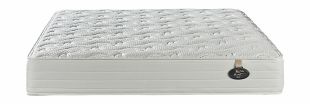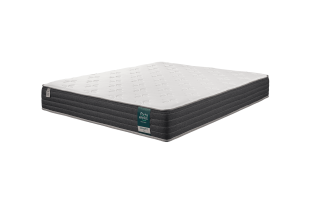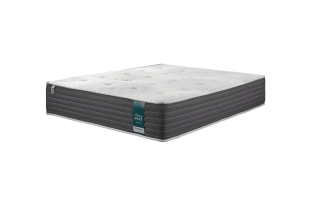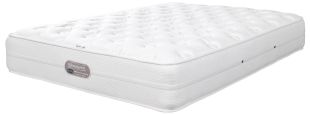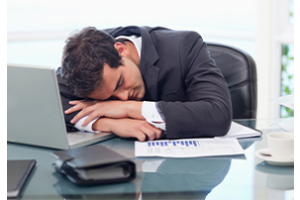How does exercise improve sleep?
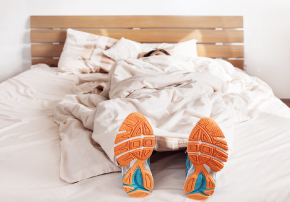

How does exercise improve sleep?
Get Regular Exercise. Enjoy Routine Sleep.
To be at our best, we should ideally eat healthily, exercise regularly and sleep deeply. If it were only that simple, we’d all be overachieving superstars. But life is mostly what happens in between our best laid plans. And what we’re able to pack into each day depends very much on our lifestyle choices, career commitments and aspiring goals. And how we’re able to manage them.
Let’s explore just two important quality-of-life factors, specifically the relationship between exercise and sleep.
How can exercise improve sleep?
Not only do our minds and bodies tend to operate more efficiently and effectively with regular exercise, but exercise also improves the quality of our sleep. While exercise does not need to be overly rigorous or strenuous, it does need to be a slightly more intense form of activity that affords the benefits of an increased heart rate and deeper breathing. Sleep following exercise is typically deeper with fewer awakenings during the night, leaving a person feeling more refreshed the next morning.
On the flip side, the better the quality of your sleep, the greater the payback of your exercise routine. Sleep is the all-important, restorative process that helps to repair and regenerate your mind and body. Essentially, sleep helps you reap the benefits of your exercise and training by enabling your muscles, heart and metabolic systems to adapt so that next time you exercise you are stronger and faster. Both the quantity and the quality of your sleep are vital to enjoying the real benefits of exercise.
How to manage exercise for better sleep.
“Sleep is not simply something we just sink into at night,” says sleep scientist Dr Dale Rae. “It is a highly active process during which our bodies repair, recover and adapt to all that we did during the day, be it laying down memories, adapting to a high intensity exercise training session or processing emotions experienced during the day. Sleep is an applied exercise in itself.”
It may not seem like rocket science, until you begin to appreciate the daily launchpad that proper, deep sleep affords us, every night. The research into sleep is a rapidly, importantly developing science that is informing us all the more of how important every night’s rest is to every day’s performance.
There are several things to consider:
- The regular time of day that you exercise.
- The types of exercise you enjoy, or find most beneficial.
- The level of intensity at which you exercise.
As a mental exercise, let’s do this backwards, starting with a level of intensity. Exercise is important, but it should also hopefully be an enjoyable diversion or, better still, a sporting interest. It should definitely be lifetime appropriate. Persistent over-exertion can eventually become counterproductive. Pushing yourself is good. Punishing yourself is not. Aerobic (e.g. cycling, swimming, running) and anaerobic exercise (e.g. high-intensity interval training, sprinting or heavy weight lifting) are all beneficial for sleep when you are fuelled correctly and appropriately recovered. A body that is over-trained or experiencing pain related to exercise training, however, will almost certainly have poorer quality sleep.
Of course, this brings us to the types of exercise that you enjoy the most or are appropriate to the level of fitness and mobility you wish to sustain. Right off the bat, outdoor exercise has a knock-on benefit for sleep. A sunny morning or afternoon on a sports field helps reinforce our body’s natural rhythms, allowing our bodies to have the appropriate signals of when to be awake and when to be asleep. This can aid in the onset of sleep and improve sleep quality. An afternoon’s tennis, a road or MTB cycle, an extended walk in the park, or an upbeat beach walk, are all great. But these are all, practically speaking, more weekend pursuits. Who really has the weekday time? This is where we should ideally make time for an early morning, lunchtime, or evening run, or a regular gym or fitness club routine – morning, noon or evening. Find a regular time during your day that you absolutely dedicate to 30 minutes or an hour of exercise. If work schedules interrupt every now and then, so be it. But the one thing you want to do is exercise a commitment. Keep your exercise time regular.
And finally, this is where the importance of time comes in. You can exercise at any time you wish, as long as it’s not leading up to your usual bedtime. Dr Rae explains. “Expending energy just prior to sleeping is not helpful in inducing a state of relaxation and, ultimately, restful sleep. The body needs to be calm and relaxed, so that both mind and body are readying for sleep.”
“There’s another aspect of exercise time that we all need to accept. Some of us are early risers. Others, being naturally late sleepers, are not the sprightliest morning folk. Pay heed to the natural sleep (or circadian) rhythm of your body. Plan your regular exercise according to your natural inclination to exert yourself, whether that be first thing in the morning, a lunchtime break, or an early evening workout.”
What are the combined benefits of exercise and sleep?
In addition to a considered dietary plan, exercise and sleep work in tandem to both re-invigorate and replenish the body.
For instance:
- Exercise helps to process both essential minerals and remove unwanted toxins. So does proper, quality sleep.
- Just as your daily exertion works towards a sustained level of fitness and mobility, so does sleep reward that exertion by repairing and replenishing both mind and body, every night.
- And it works both ways. The better the quality of your sleep, the more likely you are to be able to take each exercising day in your stride.
- Exercise helps to release endorphins. Endorphins are, simply put, hormones that aid in stress relief and mood enhancement. Endorphins help to keep the mind centred and self-assured. When facing the most challenging of times, endorphins won’t solve anything. But they will most definitely help in making considered and balanced decisions. And the more centred you are, the calmer you’ll be when it comes to falling asleep.
How to exercise your best sleep.
Dr Rae reminds us. “Sleep, in itself, is a practised exercise. And everything that you do during your day should, ideally, help to attain your very best night’s sleep, every night. Yes, there will be the odd interruption, or even life demands and complications. We all have pressing concerns that might keep us up at night, or compromise the quality of our sleep.”
It’s when we regularly have short, poor-quality sleep that it becomes an issue. Often sleep deprivation is just the symptom of another underlying problem.
Be as mindful and consistent as possible with your daily exercise. Regularity isn’t a strict code. It simply means as often, and as meaningfully, as possible and is something we should strive for in both our sleep and exercise. Prioritize sleep for your wellbeing and you will likely begin to appreciate how each day begins the night before.
If you’re not managing to get proper, deep sleep and perhaps noticing that it’s affecting your daily performance, consider contacting a sleep scientist at www.sleepscience.co.za. Get a professional take on how you manage a regular day and what your nightly sleep routine is. It’s often an objective insight that can help to pinpoint the possible reasons for your lack of sleep and, consequently, having to drag yourself through those sluggish days.
Do the Dial•a•Bed exercise.
Whether your exercise is focused on high performance results, or it’s simply a regular, healthy pastime, it is still critical ensure you get your best sleep. Dial•a•Bed’s extensive range of mattress brands, with purpose-engineered design, has every level of support and comfort you could possibly need.
Are you sleeping on the right mattress? And how do you know? Well, pop into your nearest Dial•a•Bed store and do the exercise. Take a Sleep Station test and then let an experienced Dial•a•Bed sleep consultant help you find your perfect mattress.
You may be interested to know that Dial•a•Bed also has a range of mattresses designed specifically for high-performance athletes. Check out your options at www.dialabed.co.za. #SleepForLife.
TAKE CARE: Lifestyle recommendation is not medical advice. Always consult your healthcare professional should you be experiencing prolonged sleep difficulties or related health issues.

